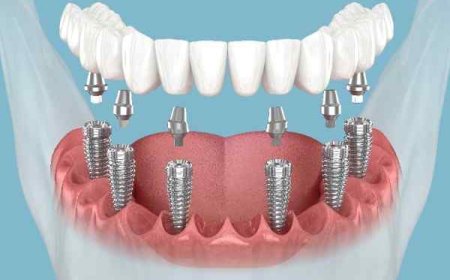Can Diclofenac Really Ease Your Toothache?
Learn how Diclofenac works for toothache, when to use it, potential side effects, and why it's best as a short-term fix—not a replacement for dental care.

Toothache can strike at any timeusually when you least expect it and often when its least convenient. Whether its the sharp jolt of sensitivity or a dull, throbbing pain that wont let you sleep, its natural to look for fast relief. For many, that means reaching into the medicine cabinet for a painkiller. But what about Diclofenac? Can this commonly used anti-inflammatory really ease your toothache?
In this blog, well break down what Diclofenac is, how it works, and whether its suitable for toothache relief. If you're looking for answersand some peace of mindread on.
What is Diclofenac?
Diclofenac is a type of medicine known as a non-steroidal anti-inflammatory drug (NSAID). Its used widely across the UK for managing pain and inflammation, especially in conditions like arthritis, back pain, and injuries.
Available under brand names like Voltarol, Diclofenac comes in different forms, including oral tablets, gels, suppositories, and injections. While the topical gels are mostly for joint and muscle issues, the tablets are sometimes used for dental or post-surgical pain.
How Does Diclofenac Work on Toothache?
To understand how Diclofenac helps, its important to know whats going on when your tooth hurts. Most toothaches are caused by inflammationwhether from decay, infection, gum disease, or trauma. Inflammatory substances in your body cause swelling and send pain signals to your brain.
Diclofenac works by blocking enzymes (COX-1 and COX-2) responsible for producing prostaglandinsthe chemicals that trigger pain and inflammation. By reducing prostaglandin production, Diclofenac lowers inflammation and dulls the pain.
In cases of swollen gums, dental abscesses, or even post-wisdom tooth extraction discomfort, Diclofenac can be particularly effective. It offers relief not just from the pain itself but from the underlying inflammation that often makes toothaches worse.
When is Diclofenac Recommended for Tooth Pain?
Different types of painkillers are used for toothache depending on severity and underlying cause. Heres a simple comparison to help you understand where Diclofenac fits in:
|
Painkiller |
Type |
Best Used For |
Prescription Needed? |
Notes |
|
Paracetamol |
Analgesic |
Mild to moderate pain |
No |
Gentle on stomach, fewer risks |
|
Ibuprofen |
NSAID |
Inflammation, sore gums |
No |
Common first-line choice |
|
Diclofenac |
Stronger NSAID |
Post-op swelling, trauma |
Sometimes (oral forms) |
More powerful, short-term use |
|
Codeine |
Opioid |
Severe, unmanageable pain |
Yes |
Risk of dependence, use sparingly |
Diclofenac is usually considered when ibuprofen doesnt provide enough relief or when pain is more intense due to swelling or trauma. It may also be prescribed following a dental procedure to manage inflammation. However, before taking any medication, its important to identify the root cause of the issue please consult ahygienist Wimbledonto assess your gum health or any underlying infection, as professional dental care may resolve the problem without the need for strong painkillers.
Benefits of Diclofenac for Toothaches
When used correctly and for a short period, Diclofenac offers several advantages:
- Quick relief: It begins working within 3060 minutes.
- Potent anti-inflammatory action: Excellent for inflamed nerves or infected gums.
- Longer-lasting effects: Compared to paracetamol, relief may last longer between doses.
- Post-surgical support: Often prescribed after extractions or root canal treatments.
Patients whove seen an emergency dentist for sudden, intense tooth pain may have been prescribed Diclofenac for this reason. Its ability to reduce both swelling and discomfort makes it a useful tool in a dentists arsenalthough not always a first choice.
Risks and Side Effects
Like all medications, Diclofenac carries potential side effects and risks, especially if not used properly.
Common side effects include:
- Nausea
- Indigestion
- Stomach pain or cramps
Serious risks with prolonged use or high doses:
- Stomach ulcers
- Kidney problems
- Increased risk of heart issues
Diclofenac is not suitable for everyone. People with existing stomach or heart conditions, high blood pressure, or a history of ulcers should avoid it. Always consult a dentist or GP before taking it, especially if youre already on other medication.
Diclofenac vs Other Painkillers for Toothache
Paracetamol is often the go-to for mild tooth pain, while ibuprofen is ideal when inflammation is involved. Diclofenac sits slightly higher in the ladderstronger than ibuprofen, but with greater caution required due to its side effects.
It can be particularly helpful in cases where other NSAIDs are not effective, or where inflammation is severe. However, due to its risks, its best used under professional advice.
When NOT to Use Diclofenac
You should avoid Diclofenac if:
- You have had allergic reactions to NSAIDs in the past.
- Youre pregnantespecially in the third trimester.
- You have a history of ulcers, heart disease, or gastrointestinal bleeding.
- Youre already taking other NSAIDs or blood-thinning medications.
Also, never use Diclofenac as a replacement for dental treatment. Its a temporary fixnot a cure.
Expert Advice: Should You Use It Without Seeing a Dentist?
Toothache is often a symptom of a deeper issuea cavity, cracked tooth, infection, or gum disease. While Diclofenac may reduce the pain, it wont solve the underlying problem. Left untreated, dental issues can worsen and lead to serious complications like abscesses or bone loss.
If your toothache persists beyond 48 hours, or if you notice swelling, fever, or difficulty swallowing, see anemergency dentist Wimbledonimmediately. Many clinics offer same-day appointments to help you manage urgent dental issues before they escalate.
Your dentist may recommend a check-up with a hygienistto remove plaque buildup or spot early signs of gum diseaseespecially if inflammation is recurring.
Final Thoughts: Relief or Risk?
Diclofenac can help ease toothache, particularly when the pain is caused by inflammation. Its a strong medication that offers effective short-term relief but isnt suitable for everyone and shouldnt be used as a long-term fix.
Think of Diclofenac as a temporary solution not a cure. The safest way to manage tooth pain is by visiting a dental professional who can diagnose and treat the underlying issue. Always use Diclofenac under proper medical guidance.
For expert dental care or emergency appointments, The Dental Lounges Wimbledon offers trusted support, quick scheduling, and a caring, professional approach to your oral health. Book a consultation and take the first step towards lasting relief.
































